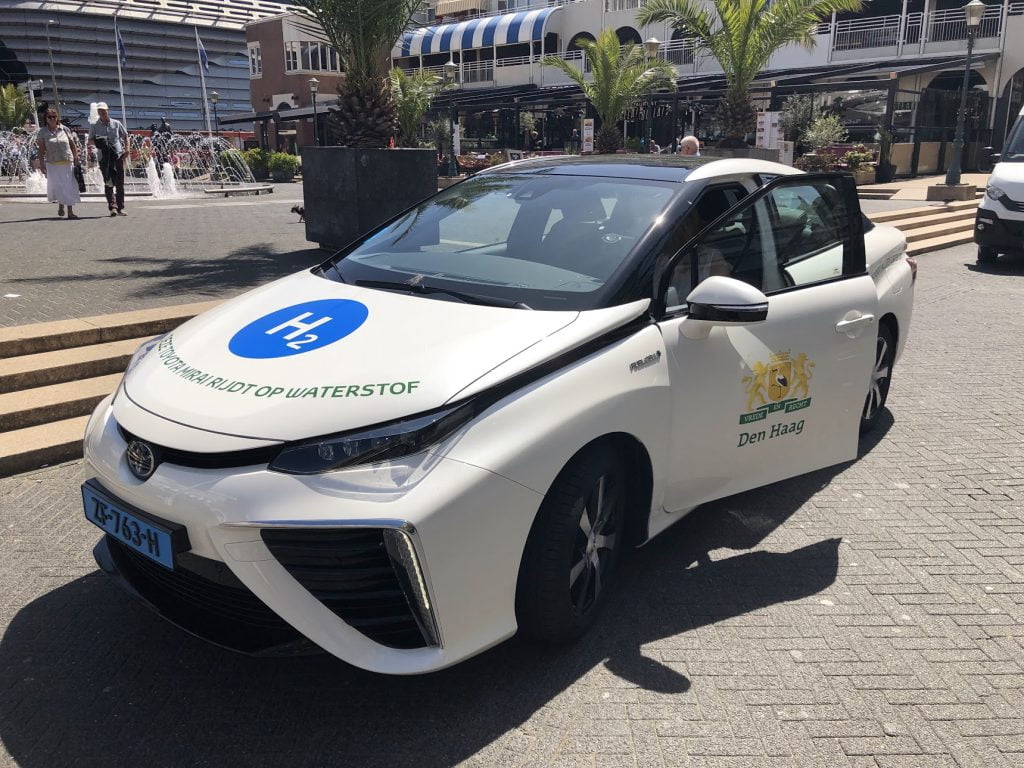After a successful trial with taxis in The Hague, Brussels also shows that hydrogen is a viable alternative to diesel, but more filling stations are needed.
As European cities face increasing pressure to adopt environmentally friendly transport solutions, hydrogen vehicles are emerging as a promising option. Brussels, which has already expressed the ambition to only allow emission-free taxis by 2025, is actively looking for sustainable alternatives. The recent collaboration between Virya Energy and Taxis Verts in Brussels is a step in that direction, following a similar effort in The Hague by Noot Passenger Transport.
Following the Brussels obligation for completely emission-free taxis by 2025 and the Brussels climate action plan, Virya Energy and Taxis Verts spent a year testing whether hydrogen gas (H2) would be suitable as a fuel for taxis and other vehicles in the city. This followed a similar initiative in The Hague, where Noot Passenger Transport had already gained considerable experience with hydrogen-powered driving.
“This combination of properties makes hydrogen vehicles a promising option for taxis,” the researchers conclude. “Integrating this type of vehicle into the Brussels taxi fleet would contribute to Brussels' carbon neutrality ambitions, without loss of income for taxi companies.”
The test results from Brussels showed according to Bruzz see that hydrogen cars are comparable to electric cars in many ways. They are equally quiet, but have the advantage of a greater range. In addition, they can be fully refueled within minutes. A full tank offers a range of 470 km, regardless of weather conditions. In The Hague, Noot Passenger Transport had already registered 1,5 million joint kilometers with their hydrogen cars, for which they used the Toyota Mirai. Director Martijn Kersing of Noot Passenger Transport had originally considered electric driving, but his research led him to hydrogen as the better option, and then to Toyota.
Nevertheless, there are still some obstacles to overcome before hydrogen can be seen as a fully-fledged alternative in Brussels. Although the test in broad terms was positive, the rollout of hydrogen vehicles on a larger scale requires better infrastructure. There are currently only seven hydrogen stations in Belgium, five of which are part of the DATS24 network. None of these stations are located in Brussels. During the pilot project, the hydrogen taxi had to refuel at a station in Halle.

Virya Energy points out that infrastructure for the further development of hydrogen mobility urgently needs to be provided in the Brussels region.
To ensure that the project ran smoothly, drivers who drive the hydrogen taxi received specific training on hydrogen technology and the operation of the fuel cell. This training was provided by experts from Virya. It was essential that drivers were well informed, not only because they are the first point of contact for curious customers and the public, but also because their direct experience with the vehicle could provide valuable information about the feasibility of such a technology on a large scale.
The involvement of prominent local stakeholders underlines the importance of this initiative for Brussels and the whole of Belgium. Jean-Michel Courtoy, CEO of Taxis Verts, expressed his enthusiasm for the pilot project and emphasized his company's commitment to CO2-neutral mobility. In addition, Stephan Windels, CEO of Eoly, underlined the importance of collaboration and innovation for a more sustainable future and the overall objectives of the 2030 climate-energy plan.
infrastructure
For a city aiming for a zero-emission taxi industry in just a few years, the lack of sufficient fuel stations can be a major stumbling block. It emphasizes the need for both public and private investments in building a more extensive network of hydrogen stations, not only in Brussels but throughout Belgium.
However, the positive results of the pilot project highlight that, with the right support and investment, hydrogen can be a viable alternative to traditional fuels in urban transport. If Brussels and other European cities take this path and create the necessary infrastructure, it could be a tipping point for the way we think about urban transport in the face of climate change.


